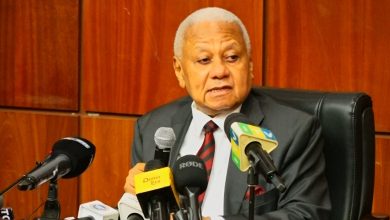Vision 2025 quells global shocks

DODOMA: AS Tanzania prepares to usher in a new era with President Samia Suluhu Hassan set to launch the Tanzania Development Vision 2050 tomorrow, the outgoing Vision 2025 has been widely credited for helping the country’s economy remain resilient amid global shocks and shifting fiscal policies.
While many member states of the Southern African Development Community (SADC) and East African Community (EAC) experienced negative or minimal economic growth during the Covid-19 pandemic and regional conflicts, Tanzania maintained a steady growth rate of 4 to 4.5 per cent.
This resilience was largely attributed to Vision 2025’s strategic focus on building a strong and adaptable economy.
Executive Secretary of the Planning Commission Dr Fred Msemwa provided a nutshell of the Vision 2025 achievement, during a briefing in Dodoma on Tuesday on preparations for the launch of the Tanzania Development Vision 2050 (TDV 2050).
He noted that Tanzania’s elevation to lower-middleincome status in July 2020 was no accident but the result of the firm commitments laid out in Vision 2025, which will conclude in June 2026. The new Vision 2050, is designed to guide the country toward achieving uppermiddle-income status. Beyond economic gains, Vision 2025 also prioritised people-centred development, ensuring expanded access to social services such as water, healthcare, education and transport infrastructure.
A key pillar of the vision was the industrial sector, recognised as the engine that would drive growth in other sectors like agriculture. Dr Msemwa said that the formulation of Vision 2050 involved extensive public consultation, gathering input from 1,174,000 Tanzanians across the mainland and Zanzibar.
Opinions were collected through various channels including text messages, community discussions, workshops, websites and social media.
“We reached out to all segments of society, think tanks, ordinary citizens, youths, women and people with disabilities. The process was inclusive and participatory, resulting in a broad spectrum of views,” he said.
In crafting the new vision, the commission also drew lessons from successful development strategies in countries such as Botswana, South Africa, Mauritius, Brazil, South Korea and Indonesia.
ALSO READ: Call for political parties’ manifestos to align with Vision 2050 goals
Dr Msemwa called on all Tanzanians to participate in tomorrow’s landmark event at the Jakaya Kikwete Convention Centre in Dodoma, describing it as a generational milestone since national visions are crafted only once every 25 years.
“We invite all Tanzanians to join the official launch of Vision 2050, which will be presided over by President Samia Suluhu Hassan,” Dr Msemwa said. “This vision comes at a pivotal moment in our history. Tanzania is better prepared than ever to accelerate development, thanks to robust infrastructure, including modern roads, railways, air and marine transport that facilitates efficient economic activity,” he said.
He also pointed to improved education access and heightened public awareness of Tanzania’s abundant natural and human resources as key factors creating an environment primed for transformation.
“Our challenge now is to leverage these resources wisely to speed up development. Vision 2050 clearly highlights priority areas that will drive this progress,” Dr Msemwa hinted. The Commission’s Deputy Executive Secretary Dr Mursal Milanzi added that before developing Vision 2050, a thorough evaluation of Vision 2025 was conducted. Areas where targets were not met have been addressed in the new plan.
“We focused on our successes, identified shortcomings and made sure Vision 2050 will effectively tackle those gaps,” he explained.





